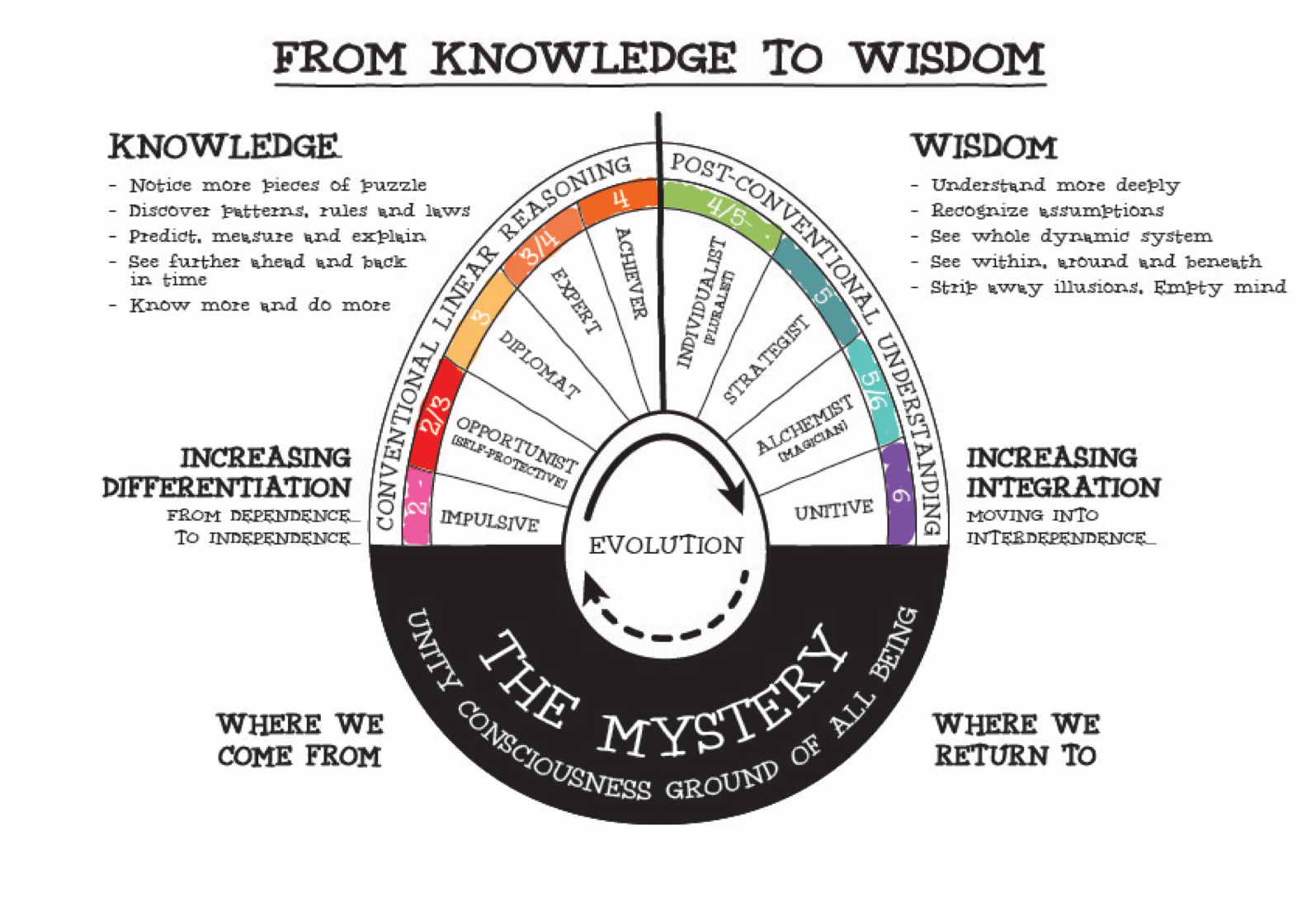Human development is about making sense of our experience in ever more complex and adequate ways. As we name, interpret, ascribe value and meaning to our experience, we expand our worldview and our ability to respond effectively to the challenges we face.
A continuing capacity to renew the way we see and value, to question our assumptions, to re-evaluate our interpretations, and to re-frame reality in more comprehensive ways lies at the heart of the developmental process. We are beginning to appreciate that the capacities that have so successfully brought us to our current developmental stage are not sufficient for the future and that new capacities for adaptive and collaborative leadership are necessary.




